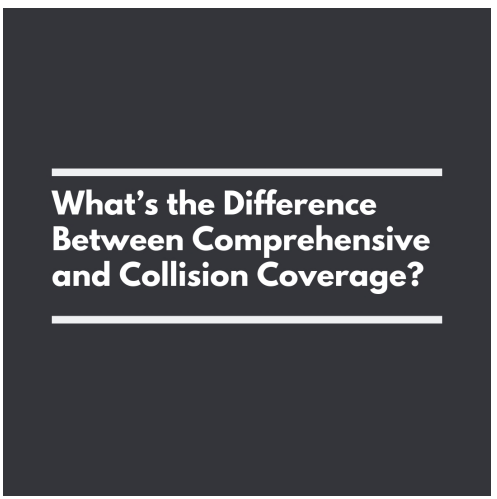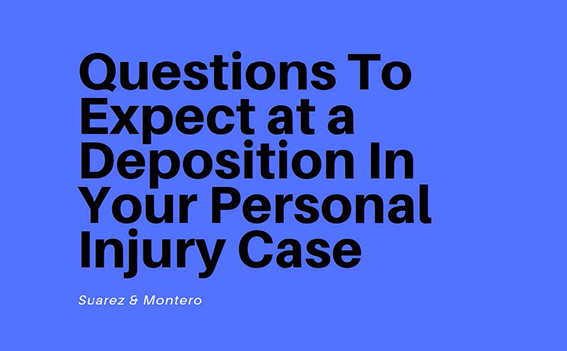
What’s the Difference Between Comprehensive and Collision Coverage?
Personal-injury claims arising out of auto accidents should not be undertaken without an appreciation of all auto- insurance coverages. Auto insurance is highly regulated, and policy language has consistently been held ineffective when it conflicts with statutory requirements. However, many car owners are unsure if they should carry both comprehensive and collision insurance. In fact, some car owners are not even sure what the difference is between them. These coverages are sometimes referred to as physical damage coverage. Comprehensive and Collision coverage help repair your vehicle after a covered accident. Comprehensive coverage generally reimburses you when your car is damaged from theft, vandalism, fire or hitting an animal. It also covers damage to your vehicle caused by weather-related events like hail. Collision coverage provides coverage when damage occurs to your car while moving, parked or struck by another vehicle.
An Overview on Auto Insurance Coverages: To assess the impact of auto insurance in any case, the first step is to obtain any potentially applicable auto- insurance policy. Auto insurance may be subdivided into four categories: liability, uninsured-motorist coverage, vehicle coverage, and medical-payments coverage. Auto coverage is influenced by state law, together with regulations and bulletins of the Florida Department of Insurance. Of these four categories, only liability coverage is mandatory, although it is also mandatory that auto insurance companies offer collision, medical-payments, and uninsured-motorist coverage. For medical payments and UM/UIM, the insurer must obtain an express rejection in order not to provide these two coverages. The Motor Vehicle Financial Responsibility Act in Florida sets out required levels of liability coverage. A driver who fails to comply with these minimum coverage requirements faces conviction of a misdemeanor, requiring payment of a fine and possible performance of community service, as well as suspension of the individual’s driver’s license. The limits of liability are not increased when more than one person or organization is an insured under the policy. For example, when a teenage driver and his parents are both liable for injuries caused by an auto accident and both are insureds under the same policy, the policy limit does not increase. The policy limit is per claim, not per insured.
What is Collision Coverage?
Insurers are also required to offer collision coverage as part of any autoliability policy, with deductibles of $100 and $250. Other deductibles are commonly available. Collision coverage provides insurance, without regard to fault, against accidental property damage to the insured motor vehicle. Insurers will subrogate against tortfeasors, and when the tortfeasor has liability insurance, this is commonly handled by intercompany arbitration agreements. When an insured has an accident with a vehicle insured by the same insurer, the insurer will usually waive the deductibles.
What is Comprehensive Coverage? Comprehensive coverage policy provisions expand the coverage of collision insurance. A typical policy provides:
“We will pay for loss to your car, except loss by collision, including breakage of glass, or loss caused by missiles, falling objects, fire, theft, larceny, explosion, earthquake, windstorm, hail, water, flood, malicious mischief, or vandalism, riot or civil commotion, loss due to hitting or being hit by a bird or an animal. Due to the nature of comprehensive coverage, policy provisions may vary greatly from policy to policy”
Usually the policy provision is limited by a definition of “loss.” Most policies define loss as the direct and accidental loss of or damage to the insured auto. The focus of litigation with respect to comprehensive coverage is what constitutes a “direct” loss. Courts have interpreted the term as being synonymous with the phrase “direct cause,” which is the legal equivalent of proximate cause. For example, damage from a mechanical breakdown or wear and tear on the vehicle is not a direct loss, but a collision that causes a mechanical failure would be a direct loss.
Contact an Experienced Personal Injury Attorney Today!
There is no replacement for quality legal advice after being involved in a car accident. The car accident attorneys at Suarez and Montero would love to have an opportunity to explain the law in Florida to assist you in presenting a strong claim against the at fault party. Every firm is distinctive and auto accident victims have needs that are also distinct. needs are different. The Florida auto accident attorneys at Suarez & Montero encourage you to reach out so that we can explain more about the different ways that our law firm and attorneys can provide legal help and guidance after an auto accident. Make an appointment with us at one of our many locations. Remember, we work on a contingency basis so you will owe us nothing If we are unable to obtain successful results for your case. The attorneys at Suarez & Montero can meet with you to discuss further. always available to talk with you and answer your questions. Our skillful attorneys are genuinely committed to our clients. We will fight to make sure that you get the maximum amount of compensation owed to you. Let us help you get the medical care you need and fight to make sure you are compensated for your injuries! Our attorneys are ready to provide proven legal representation in pursuing your claim and stand ready to protect your rights. We are available 24/7 to give you a free, no risk case consultation.
We serve clients throughout Florida including those in the following areas:
Miami-Dade: Aventura, Coral Gables, Doral, Fontainebleau, Hialeah, Homestead, Kendall, Miami, Miami Beach, Miami Lakes, North Miami, Tamiami, and Westchester.
Broward: Fort Lauderdale, Hallandale Beach, Hollywood, Pembroke Pines, and Weston; and Palm Beach County including Boca Raton, Lake Worth, and West Palm Beach.
The Law Offices of Suarez & Montero Car Accident Attorneys represents accident victims injured in various types of accidents including:
• Distracted Driving Accident Lawyers
•Drunk Driving Accidents
• T-Bone Car Accidents
• Road Rage Car Accidents
• Head-on Collisions
• Rollover Accidents
• Rear-end Car Accidents
• Left Turn Accidents
• Failure to Yield Car Accidents
• Sideswipe Accidents
• Merging Accidents
• Lane Change Accidents
• Construction Zone Car Accidents
• Truck Accidents
• Semi-Truck Accidents
• Bicycle Accidents
• Train Accidents
• Pedestrian Accidents
• Boating Accidents





